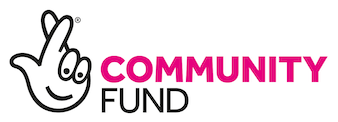Alcohol Awareness Week – Alcohol & Breast Cancer
Alcohol, do we know the facts?
Every day we see the impact of hazardous, dangerous and dependent alcohol consumption – our services see lives severely affected by addiction, its health and social impacts and the devastating harm it causes to families and relationships. However, our services work to change this.
Educating people on the dangers of hazardous alcohol consumption can make a big difference and help stop lives being blighted by addiction. This week is Alcohol Awareness Week, with the particular theme of alcohol and its relation to health. Each day we will be sharing facts and information about alcohol and its influencing role in many health issues – read on and share and promote these messages.
Alcohol and Breast Cancer
Breast cancer is by far the most prevalent and one of the most fatal cancers in women in the UK. Some lifestyle choices greatly increase the risk of developing breast cancer, namely, drinking alcohol.
Alcohol breaks down into carcinogenic compounds in the body, which increases the risk of genetic mutations and damage to DNA, leading to cancer. Alcohol has also been linked to increased levels of the female hormone, oestrogen, in the blood. Breast cells are sensitive to oestrogen, and when exposed to higher-than-normal levels may become cancerous.
Although the link between alcohol and cancer is well established in research, less than half of the British public are aware of it, and less than a third of the specific link between alcohol and breast cancer. Limiting alcohol intake is the only certain way to decrease the risk of developing cancer.
Stats
- Around 1 in 8 women in the UK will develop breast cancer in their lifetime.
- In 2011, nearly 50,000 people were diagnosed with breast cancer in the UK. Around 6% of these cases were directly attributable to alcohol.
- Each drink per day increases the risk in women of breast cancer by 7% – 12%. Drinking just 2 drinks a day increases the risk of developing breast cancer by 18%.
- If alcohol consumption was reduced to less than one unit a week, around 6% of breast cancer cases could be prevented.
Raising Awareness
It is clear that alcohol consumption contributes to the development of breast cancer. One of the best ways to reduce the risk of breast cancer is to limit alcohol consumption and raise awareness of the link.
As a charity dealing with these issues every day, we are the experts by experience – we see the results of alcohol dependence, but importantly, work to rectify them. We are committed to raising awareness of the dangers of hazardous alcohol consumption, preventing addiction and ensuring people are aware of the risks.


